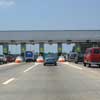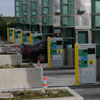Motorists are one of the largest special interest groups in the world. The number of licensed drivers in the United States and Canada – over 250 million – dwarfs the population of most countries.
Drivers’ rights don’t just occur naturally. To protect the driving public from excessive tolls, fees, and fines and to ensure that motorists retain the due process rights afforded all citizens, it takes an organization dedicated to the task. That organization is, and has been for the past 38 years, the National Motorists Association (NMA).
The NMA’s strength as a grassroots advocacy organization – our ability to effectively lobby federal, state, and local governments for change – is derived from our membership. Join the NMA and become an agent of change on behalf of the motoring public.
The Alliance for Toll-Free Interstates, of which the National Motorists Association is a supporting member, notes that these are among the many reasons tolling is bad public policy:
- Tolling is an underhanded tax, not a user fee. Tolls raise business costs for moving goods through the supply chain, hurting American manufacturers and the competitiveness of local companies. Tolls force everyday consumers to shoulder the burden of paying more for goods transported by truck, even if they did not drive on the tolled road. Hardest hit by tolls will be America’s small businesses and their employees.
- Tolling existing interstates is double taxation. Since the inception of the Federal Interstate Highway System, the federal gas tax has always been the primary source of revenue for the construction and maintenance of federal interstate lanes. Every time motorists puts gas in their vehicles, they are upholding their end of the deal for interstate maintenance. Converting non-tolled roads to tolled facilities, even when combined with a congestion relief effort, forces drivers to pay two taxes for that same road: a gas tax and a toll tax.
- Tolling is a highly inefficient, bureaucracy-laden form of taxation, to the point of being fiscally irresponsible. Even with the latest technology, the Congressional Budget Office estimates collection costs alone are at least 8 to 11 percent of revenue collected. Toll management, enforcement, and operations total an even larger portion of revenues that do not go to actual road improvements. In 2018, the all-electronic North Carolina Triangle Expressway spent 36.8 percent of annual revenue on toll operating costs. If tolls are a “user fee,” diverting significant funds from infrastructure improvements violates the public trust.
- Loosening tolling restrictions amounts to the federal government shirking its responsibility to generate sustainable funding for roads. Financing through public-private partnerships does not address the long-term solvency problems of the Highway Trust Fund. Allowing states the “flexibility” to toll in fact foists the infrastructure funding problem onto state and local governments and fragments our infrastructure system.
When it comes to tolls, Americans pay more and get less. We need sustainable investment in our infrastructure, not inefficient policies that take more and more money from hardworking motorists and businesses. The needs of America’s transportation network are vast and deserve serious attention without the distraction and unfairness of tolls.

Why Toll Roads Are A Bad Idea

Toll Roads Divert Traffic And Cause Accidents

High Occupancy Vehicle (HOV) Lanes

Toll Road Studies







